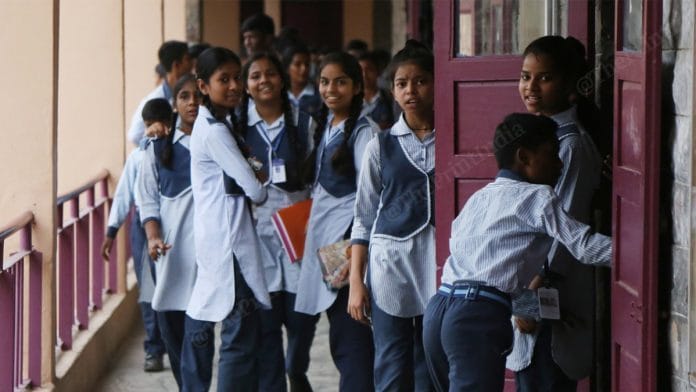New Delhi: Scientists around the world continue to look for clues that may help better manage Covid-19 infections. The viral has so far claimed over 6 lakh lives and affected more than 1 crore people globally.
Here are some of the latest findings around Covid-19.
School reopening ‘must be accompanied by large-scale testing’
Effective contact-tracing and epidemic control measures are a must is schools are to be re-opened, according to two studies published simultaneously in The Lancet Child & Adolescent Health journal.
One study, which models the impact of UK schools reopening in September, says a second Covid-19 wave could be avoided in the country with a test-trace-isolate programme.
Relaxation of physical distancing, including reopening of schools, “must be accompanied by large-scale, population-wide testing of symptomatic individuals and effective tracing of their contacts, followed by isolation of diagnosed individuals”, said the study.
Another study, which analysed data collected between January and April in Australia, found low levels of transmissions in schools and nurseries when control measures were in place.
There is lack of evidence on the role of schools in the transmission of coronavirus because a majority of existing data is based on modelling, and very few studies have used real-world information from schools to investigate outbreaks.
Much remains unknown about transmission in educational settings, scientists have said, urging large scale research to monitor what impact reopening of schools will have.
Also read: Countries with BCG vaccine policy have slow Covid infection and death rates, US study finds
Protein that increases with age linked to severe Covid
A protein, known as transferrin, may be an early indicator of which Covid-19 patients are at high risk of severe illness, a new study has found.
Researchers from the University of Kent and Goethe-University have found that transferrin critically contributes to severe forms of Covid-19.
For the study, the team looked at existing data on gene expression in humans and infected cells to search for molecules involved in blood coagulation. These molecules differ in women and men, change with age, and were regulated in response to SARS-CoV-2 infection.
Out of more than 200 candidates, researchers identified a protein called transferrin as the cause of blood clotting. Transferrin increases with age, is higher in males than females, and is also higher in SARS-CoV-2-infected cells.
The researchers said transferrin may have the potential as a biomarker for early identification of Covid-19 patients at high risk of severe disease.
Antivirals killing SARS-CoV-2, MERS virus in infected cells
A team of scientists has developed a couple of broad spectrum antiviral compounds that can kill several types of coronaviruses, including SARS-CoV-2, in cell cultures and mice.
The compounds also neutralised viruses in human airway cells and improved survival rates in mice that were infected with the virus causing Middle East respiratory syndrome (MERS).
For the study, the team tested several drug candidates in cells infected with SARS-CoV-2, SARS-CoV, or MERS-CoV.
One of the compounds, named 6e, showed strong activity against SARS-CoV-2 and inhibited viral replication by 10 fold in cultured human airway epithelial cells that were taken from infected donors.
Another potent compound, 6j, boosted survival rates in mice infected with MERS-CoV, reduced the amount of virus in lungs, and prevented dangerous complications such as lung edema.
The team now plans to conduct further research to see if one of the compounds could effectively treat both MERS and Covid-19 in humans.
Branch of immune system that worsens Covid-19 outcome
A branch of the immune system, called complement, may influence the severity of Covid-19 disease, according to a new study.
The complement system helps clear microbes and damaged cells from the body, promote inflammation, and attack the pathogen’s cell membrane.
Researchers at the Columbia University Irving Medical Center have found that people with age-related macular degeneration — a disorder caused by overactive complement — are at greater risk of developing severe complications and even death due to Covid-19.
The study, published in the journal Nature Medicine, suggests that existing drugs which inhibit the complement system may help treat patients with severe Covid-19 illness.
The study also found that mutations in certain complement and coagulation genes are associated with hospitalisation of Covid-19 patients.
The results provide important insights into the pathophysiology of Covid-19, according to the researchers.
Also read: Blood clots in colder climates could be why India has fewer Covid deaths than West, study says






